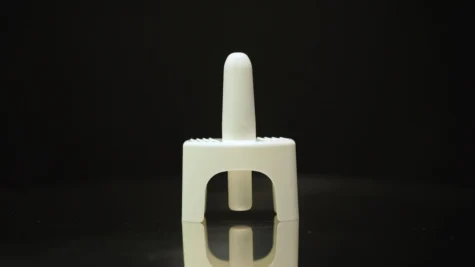Panic attacks have become an increasing concern in today’s rapid-paced world. Anyone who has ever experienced one knows how scary they can be.
So, what causes panic attacks?
Keep reading to explore a deeper understanding of these sudden, intense anxiety episodes and what could be causing your attacks. Sit tight, and let’s untangle it together.
The Unseen Culprits: What Causes Panic Attacks?
Genetic Predispositions: It Runs in the Family
Genetics is one of the main factors that cause panic attacks.
If there is a history of anxiety disorders or panic attacks within your family, then you are more likely to experience such yourself.
The research reveals that our genes significantly determine how we deal with stressors as well as anxiety-related conditions themselves.
Although you can’t alter your genetic composition, knowing its existence might help you manage your symptoms more effectively.
Stress and Anxiety: The Daily Grind
When life gets overwhelming, stress can trigger a panic attack. Constantly worrying about work, personal matters, or money can take a toll on your mental health.
When your body stays on red alert all the time, it upsets the balance of stress hormones, leading to panic attacks.
Medical Conditions: The Hidden Agitators
Some medical conditions also trigger panic attacks.
For example, thyroid disorders, heart disease, or respiratory diseases can lead to the onset of a panic attack.
Proper diagnosis and treatment must first rule out these medical conditions.
If one suspects an underlying illness could be contributing to one’s problem, it is advisable to get professional medical advice.
Breaking Down the Symptoms: How to Recognize a Panic Attack
Physical Symptoms: The Body’s Alarming Response
Your body goes into hypergear mode when a panic attack occurs. Common physical symptoms include:
- Fast heartbeat
- Sweating
- Trembling or shaking
- Difficulty breathing
- Coldness or hot flashes
- Feeling faint or dizzy.
By recognizing these signs, you will know that the symptoms are associated with panic attacks and not something worse.
Psychological Symptoms: The Mind’s Reaction
Besides the physical symptoms, panic attacks also manifest psychologically. These can include:
- Fear of losing control
- Sense of impending doom
- Depersonalization
- Fears of dying
Therefore, knowing both physical and psychological symptoms would help you to manage your episodes better.
The Science Behind It: What’s Happening in Your Brain?
The Fight-or-Flight Response: A Double-Edged Sword
Your body’s natural response to danger is called the fight-or-flight response. This mechanism prepares you to confront or flee from a threat.
However, this response is triggered during a panic attack without any real danger. The result? A flood of adrenaline that sends your body into a state of hyperarousal.
Neurotransmitters: The Chemical Messengers
For instance, neurotransmitters like serotonin and dopamine are essential in regulating mood as well as anxiety.
An imbalance in these chemicals could lead to panic attacks. Medications balancing these neurotransmitters are often prescribed for anxiety and panic disorder management purposes.
Present Data: Numbers Do Not Lie
According to recent studies, about 4.7 percent of adults in the United States are affected by panic disorder at some point in their lives.
Women are twice as likely to get panic attacks as men. These statistics show how widespread this condition is and how important it is to know its causes and treatments.
Coping Mechanisms: Take Control of Panic Attacks
Lifestyle Changes: Baby Steps, Big Rewards
Making small changes in your lifestyle can significantly decrease the frequency and severity of panic attacks. You may wish to consider the following:
- Regular Exercise: Physical activity aids in stress and anxiety management.
- A Balanced Diet: Eating well contributes to better mental health overall.
- Getting Enough Sleep: Anxiety levels can be lowered through good sleep hygiene.
- Mindfulness Techniques: Activities such as yoga or meditation soothe the mind.
Professional Help: You Don’t Have To Do It Alone
Personal therapies are just sometimes inadequate. Getting professional assistance is a crucial step towards effectively managing panic attacks. The available treatments include:
- CBT (Cognitive Behavioral Therapy): This treatment helps one understand and change negative thinking patterns.
- DBT (Dialectical Behavior Therapy): DBT primarily focuses on emotional control and mindfulness.
- Medication-Assisted Treatment (MAT): Drugs like SSRIs help balance neurons that transmit signals between cells within the brain.
- Family Therapy– Involving family members can give you more support.
Don’t Let Panic Attacks Define You—Reach Out to Us!
What causes panic attacks? Many different things, including genetics, stress, and medical conditions, can cause them.
Knowing what triggers these symptoms is key to effective management of this condition.
If you or someone close to you has been suffering from panic attacks, don’t hesitate to get professional help.
We at Southern Sky Recovery are a family-centric rehab facility dedicated to helping you recover fully from anxiety.
We have caring experts who are committed to your welfare and offer different levels of care, such as IOP, PHP, and outpatient services.
Our comprehensive programs encompass medication-assisted therapies, drug intervention services, DBT, CBT, family therapy, and individual counseling.Start a panic-free life today by contacting us because you’re worth it.



